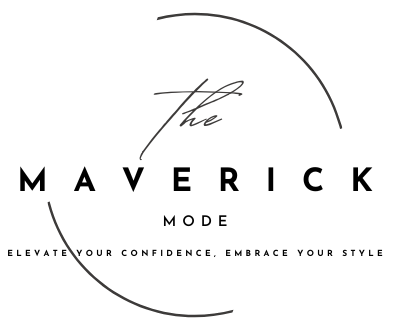In Anglophone literature, smell is the Cinderella of the senses. Europeans do things in a different way than English writers. The naturalistWith their anti-romantic, hyper-realistic commitment to scientific rigor, they treated body odor with great seriousness.
One of them, the French author, JK Huysmans, wrote a famous essay (Le Gousset, 1874) through which he compared the natural armpit odors of blondes (“intoxicating like sugared wines”), redheads (“sharp and wild”), and black-haired women (“brave and tiring”), and had disparaging comments concerning the smells of city women (“ammoniacal valerian,” “hydrocyanic acid,” and “chlorinated urine”) in comparison with their compatriots (“wild duck” and “olives”). And all of this with a serious face.
Over the course of his long writing profession, James Joyce’s ability to capture smells intensified. Dubliners (1904-1914) hardly notices smells – even the Misses Morkan’s Christmas in his acclaimed short story “The Dead” is an aromatic-free zone through which visual representation dominates. Similarly, in “Grace,” the collapsed drunk’s bloodied face after his fall is described intimately. It is not his smell. When the air is “musty” or “fragrant,” the note is incidental, an ornamental, descriptive flourish as he focuses on the conflicting minds of his paralyzed and contradictory Dubliners.
BüniD/flickr, CC BY-NC-ND
In A portrait of the artist as a young man (1916), smells develop into more haunting, but are inclined to be very conventional and moral in tone or evoke memories. The religious zealot’s prayers rise to God in plumes of “spikedard, myrrh, and frankincense,” while the hell Joyce creates incorporates the sinful stench of sewers, offal, and rotting corpses, dissected with comic exaggeration, in addition to more conventional odors in fear and terror – “sulphurous sulfur” and “pestilence smells”. Purity and defilement are the symbolic procedures.
Within the portrait there are clues concerning the direction to be taken later Ulysses (1922), when Stephen, in a spirit of humiliating his body, searches for particularly disgusting smells. Lacking an “instinctive aversion” to smells that repel others, he exposes his body to a smell that truly repels him: “a certain stale fishy stench, just like that of long-standing urine.” It’s the experimental quality of this penitential program that means a strategy systematically implemented in Ulysses and subsequently abandoned in his dream novel Ulysses. Finnegan’s Wake (1939). Possibly Joyce did not have olfactory dreams?

lets.book/flickr, CC BY-NC-ND
Nevertheless, there may be a noticeable change within the portrayal of the sense of smell in Ulysses (composed 1914-22). It is understood that the novel is encyclopedic in nature – a “book of the world,” as Marilyn French calls it. It’s replete with allusions to its literary rivals (the Bible, Homer, Dante, Shakespeare, Yeats, and plenty of more), to bodily organs and their excretory functions (not one is unnoticed), to music from opera to street rhymes, and to real people , streets, workplaces and Dublin marginalia.
Only two critics took note of the detailed and suggested catalog of smells. Still, a working database of the smells within the book, compiled by Melbourne screenwriters who wrote a play about Joyce and smell, runs to 41 pages. And the tenor of how Joyce uses smells also changes fundamentally. His focus is at all times on the on a regular basis smells of life – in a house, on the road or in a body, especially an eroticized one.
Body odor and black substances
There are lots of the reason why Joyce’s tackle the odd, on a regular basis smells of bodies was revolutionary in his time and stays so today. The iconoclast in Joyce, on the time he wrote Ulysses, portrays scented bodies matter-of-factly, which raises many questions, some of that are more philosophical in nature.
Do wealthy bodies smell different than poor ones? What can we learn concerning the continuity of life from “stuck toe”? And from your personal excrement to your personal well-being? Is the smell of men different from the smell of women? Are women olfactorily attractive to men during menstruation? Do odors follow black fabrics greater than other odors and why? Where do body odors come from – from ingested food, from the abdomen, armpits or neck? Do you fall in love at first sight? Why do people enjoy perfumes? Could they enjoy non-deodorized body odors? Are they perhaps not very different from animals within the role that the sense of smell plays in erotic encounters? Can the nose sabotage the brain?

from www.shutterstock.com
By detailing the private and non-private smells of his world, Joyce takes on an emerging medical research machine—the sexologists of the many years on the turn of the twentieth century. He actually knew his joy and Jung treated Joyce’s daughter Lucia.
In “Ulysses,” Joyce actively and transgressively has fun with the German psychiatrist, the judge of deviations Richard von Krafft-Ebing and his catalog of sexual deviations, Sexual psychopathy (1886), probably the most racist parts of that are written in Latin to scare off non-medical people.
He makes much more productive use of the insights of the more liberal Havelock Ellis, who devoted an extended chapter to smell in his multi-volume book Studies in sexual psychology (1897-1928).
But being Joyce, he treats what these medical-psychological luminaries need to say about smell in a joking yet serious and surprisingly prescient way. He’s interested by perfume culture and particularly natural body odors, the urge to cover them up and their connection to eroticism. He’s aware of the function of the aprocrine glands armpit in sexual arousal (and much ahead of science on this regard). The gap between humans and animals doesn’t trouble him, and he doesn’t shrink back from venturing into the dark intersection of art and pornography, where he mixes each moments of transcendence with the ridiculous in human behavior.
The olfactory journey in Ulysses is primarily that of the protagonist Leopold Bloom, and within the second half of “Nausicaa”, a chapter on the attention and nose, we’re given Joyce Bloom attempting to determine what “man’s smell” and “woman’s smell” is likely to be, and Where does it come from:
Inform you what it’s. It’s like a wonderful veil or web that they’ve throughout their skin, as wonderful as they call it, gossamer-thin, and so they’re consistently spinning it out of themselves, as wonderful as the rest, rainbow colours without knowing it. Clings to every part she takes off. Vamp her stockings. Warm shoe, stays. drawers. …. Know her (Molly’s) smell in a thousand ways…. Also bath water. …. I’m wondering where it truly is. There or within the armpits or under the neck. Since you get it out of every hole and corner.
But Bloom’s wife Molly can also be a connoisseur, albeit potty-trained. She is deeply offended that her husband Leopold Bloom has not placed barriers in the way in which of his rival Blazes Boylan, and smell is a way of taunting her husband (like a hunting dog, she mistakenly believes she will detect one other woman’s perfume ). his clothes).

lilszeto/flickr, CC BY-ND
What Joyce does to smell on the climax of Bloom’s epiphany at the tip of Chapter 17 (Ithaca) is nothing lower than resignifying probably the most hideous part of anatomy and smell as temptation. After taking stock of his moral and legal options in relation to his wife’s adultery, Bloom enters the adulterated marital bed, fully aware of the smells of his rival and the traces of the picnic the adulterers had enjoyed therein, and is struck by the The smell and the traces of the picnic that the adulterers had enjoyed there overwhelmed the cosmic shape of his wife’s bottom:
He kissed the plump, soft yellow, fragrant melons of her ass, on each plump, melon-like hemisphere, in her gentle yellow groove, with unclear, long-lasting, provocative, melon-scented movements.
Just as Bloom fell in love at first sight with Molly on the Hill of Howth, Joyce makes it clear that his limbic brain sabotaged his pondering brain at that moment. Her “fatty anterior and posterior female hemispheres” undergo metamorphosis and develop into heavenly:
Islands of the Blessed, the islands of Greece, the land of promise… scented with milk and honey.
For some that may be blasphemy. For Joyce, I’d argue, it was about modernizing and secularizing the concept of the body as temple, in all its moral weakness and compromises.








